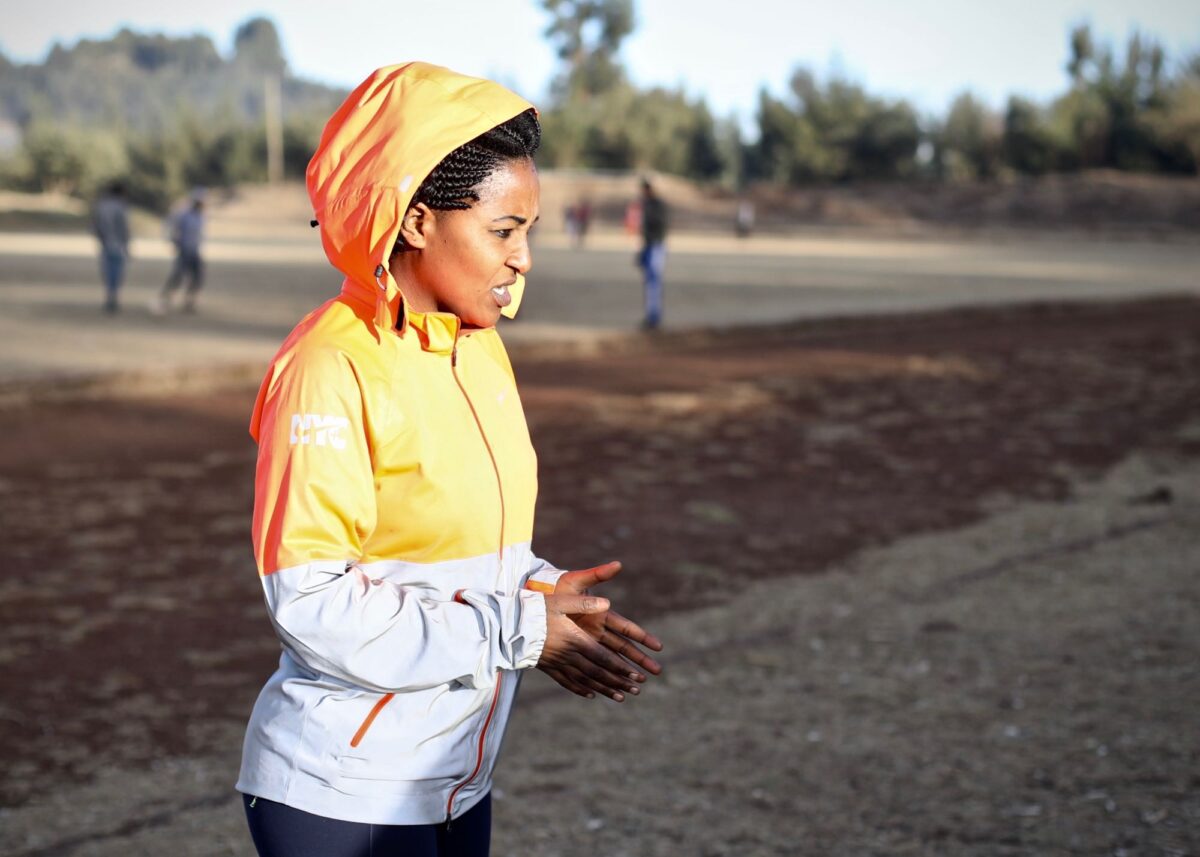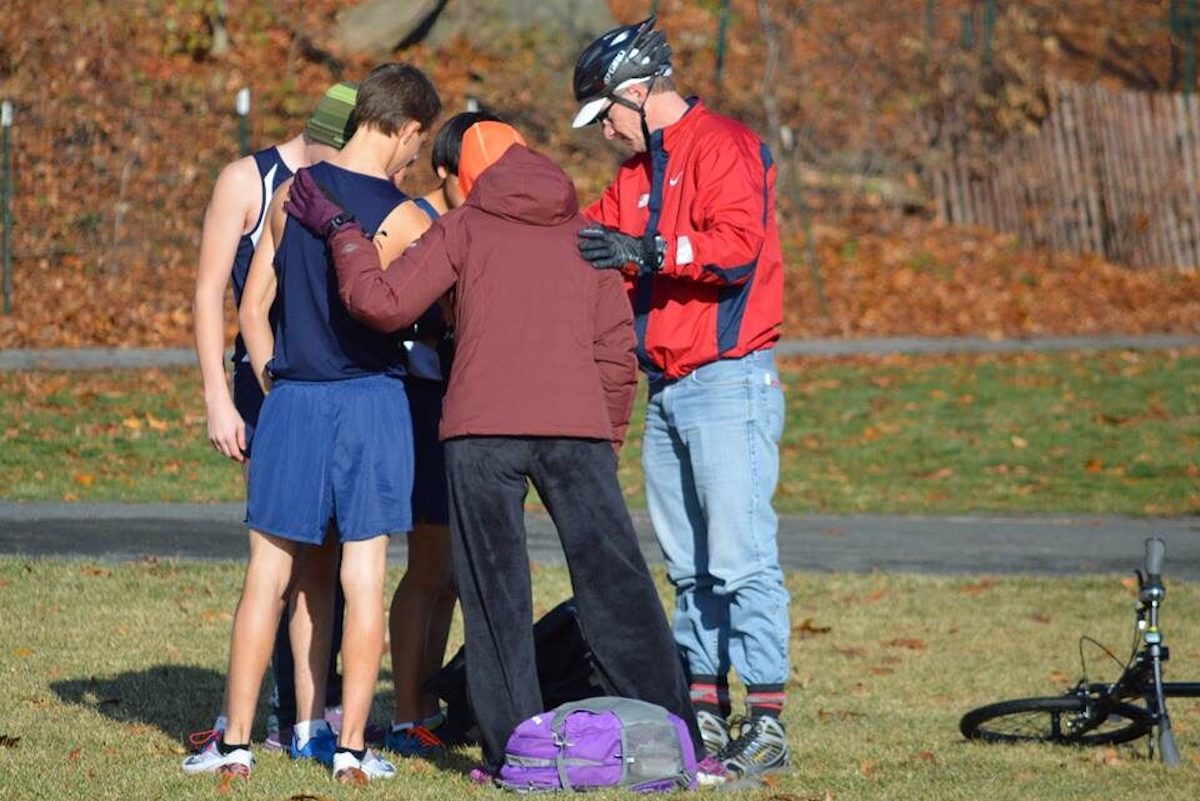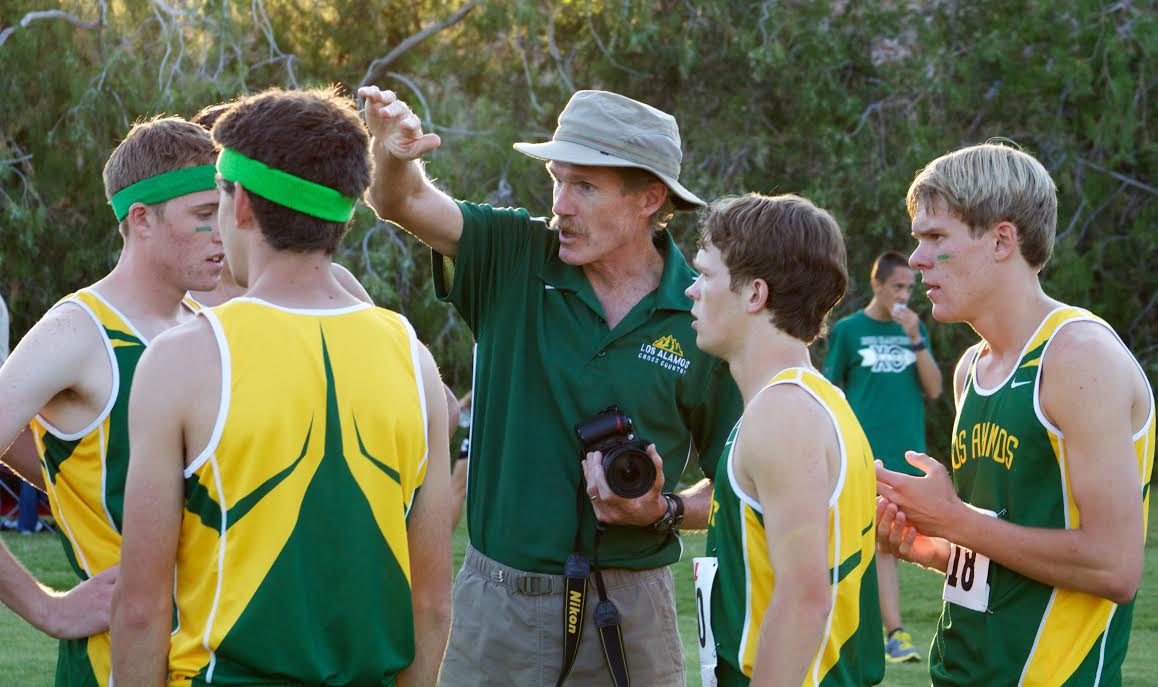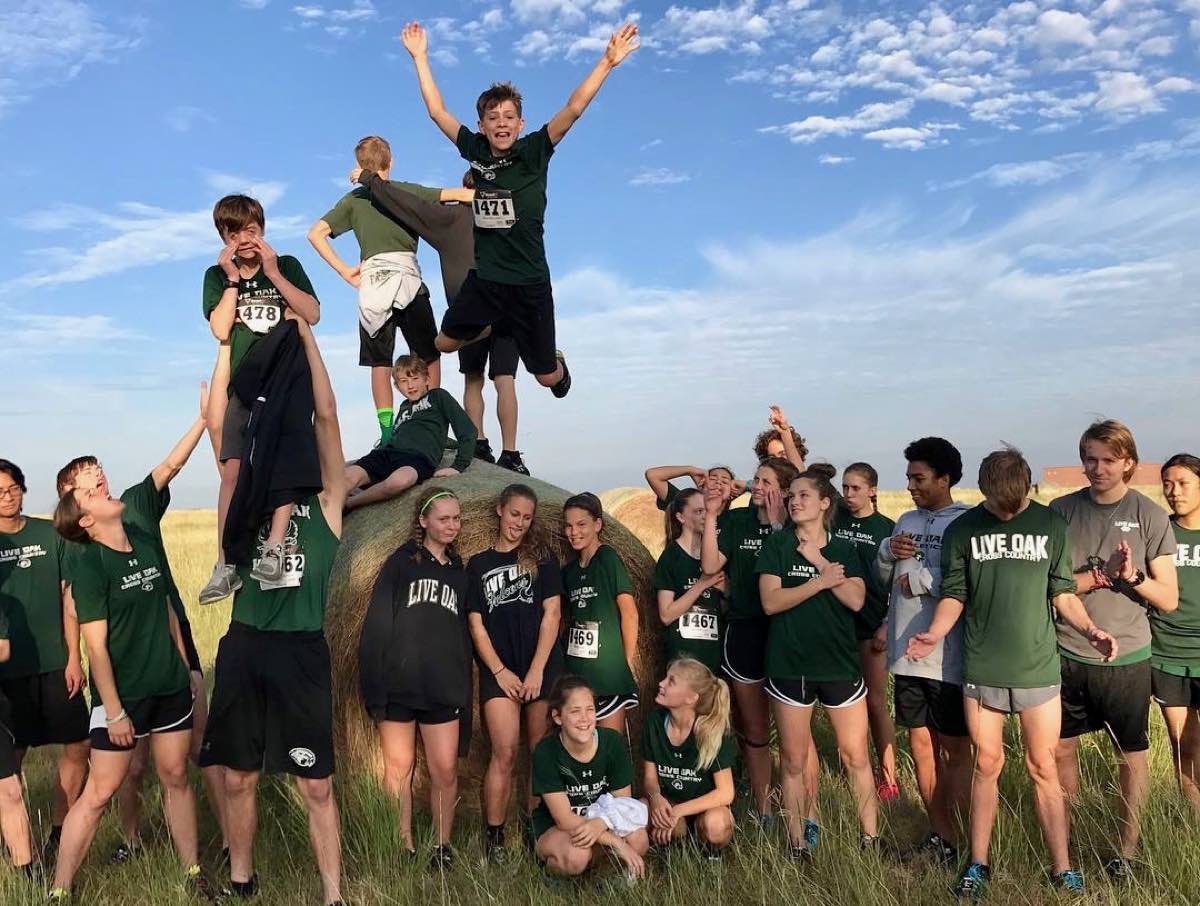I was very fortunate in my time as a high school cross-country coach to work with a great group of students. I guess it would have been odd if they were not wonderful, since it seems that cross-country runners, in general, tend to be great. This group was kind, determined, conscientious, and tough. Years later, I still hear from them regularly, and I hope I always will.
My one conflict with the team came my final year of coaching. It was late in the track season, and motivation was waning. The team was assigned to attend weight-training sessions two afternoons per week after school. That semester, I could not escort them to weights because I had a class during that time, so I trusted they were going.
At some point, attendance at weight training declined, as it is wont to do with distance athletes. This was, more or less, the fulfillment of a trope. I received a call from the athletic director informing me of this, and the next morning at practice, I found myself standing in front of the team, having a hard conversation. I held them accountable.
As their coach, there were certain things that I owed them — my own consistent attendance to practices and competitions, investment in them as people and as athletes, a continued commitment to learning the science of training so I could successfully develop them as athletes, and to facilitate their growth as people capable of self-governing well in my absence. There were certain things they owed me, too, and one of them was attendance.
The athlete-coach relationship is an odd one, and what accountability requires of us in the context of this relationship is not always clear. But these things are important to talk about because accountability can go very wrong.
The Virtue of Accountability
Accountability is a collective virtue, or an excellence that is relational. It concerns the responsibilities we have to one another, responsibilities which, when unmet, mean that one party is answerable to another (1).
We live in a culture that prizes individualism and radical autonomy, but we are inescapably social creatures. We have relationships. This means that there are situations in which we are accountable to others.
Others may have legitimate claims on us and expectations for our actions, and we may have expectations for the actions of others. To possess the virtue of accountability means we can navigate these expectations with excellence.
We might wonder what accountability should look like in the context of an athlete-coach relationship. What does it look like to be answerable to another person in a way that permits both parties to flourish? This is what I am going to focus on here. I think the best way to do so is to describe what accountability is not.
Accountability Is Not Blind Trust
In recent months, the nature of the athlete-coach relationship has been a topic of conversation in distance running circles. Some of these conversations have pertained to athlete safety. For example, some athletes at the University of Oregon reported that they were coerced into a preoccupation with reducing body fat percentages by the coaching staff — a preoccupation not conducive to either health and flourishing outside of the sport, or long-term performance success within it.
Other conversations have concerned coaches abusing positions of power. One young athlete in particular cited emotional abuse, among other complaints, at the hands of a well-known coach. He was held accountable in the form of a lifetime ban.
Some conversations have pertained to charges of performance-enhancing drug use. In one situation, an athlete tested positive, which she denied. Many people wondered aloud whether — if she did, in fact, intentionally consume steroids — the athlete’s actions were independent and free. Coach-athlete relationships involve mutual accountability. So, fairly or not, the character of her coach, who has a reputation for conducting himself above reproach, was impugned by the positive drug test.
These situations all raise concerns about the athlete-coach dynamic in different ways. One important takeaway is that athlete-coach accountability cannot involve blind trust. In the case of athlete safety and abuses of power at the hands of a coach, it is important that athletes are aware that they can speak up.
In many such cases of abuse, athletes are young or are in a situation in which there is a power differential. So, it is also important there are checks in place that assist an athlete in reporting coaching issues. It is good to initiate conversations because an athlete may not know how to come forward.
For coaches, blind trust of the integrity of athletes seems unwelcome, too. In the case of drug use, the culture of anti-doping on a team should be actively managed and explicitly addressed.

Coach Fatiyah Abdi speaks to the Girls Gotta Run team in Bekoji, Ethiopia, ahead of a speed workout. Photo: iRunFar/Meghan Hicks
Accountability Is Not Checking Your Brain at the Door
This is continuous with my prior claim about blind trust. Being answerable to another person does not mean ceding one’s personal autonomy, or entirely aligning oneself with the wishes of the other. We still bear responsibility for our own actions.
I remember listening to interviews a few summers ago with athletes of a disgraced coach in Oregon, just prior to his initial bans. Both athletes had been coached by this man since they were young athletes, and both referred to him as a father figure. I remember thinking that was not a very good posture to have toward a coach because that kind of relationship — a parental relationship — would be less reasons-responsive.
They were demonstrating affiliative behavior toward the coach, a kind of fondness and trust that was probably the result of having grown up in the sport under his care. Maybe the coach was fatherly and wonderful and treated them well. Still, I wonder retrospectively whether they were less awake to his transgressions because of their affinity for him as a person.
I realize there is a lot of messiness here, since we are people, and likely have layers of relationships with people. Some athletes are married to their coaches. Other athletes have friendships with them. Even so, it is important to retain a sense of personal agency when it comes to training, to keep ourselves safe and to act in terms of our own values.
I should also mention that athletes are accountable to coaches, but they are also accountable to the World Anti-Doping Agency (WADA) and to their families, friends, and communities. These other accountability relationships should have some bearing on how much authority is given to a coach. For example, WADA, insofar as it regulates the integrity of the sport for both coaches and athletes, is a higher allegiance for athletes than the coach-athlete relationship.
Accountability Does Not Look the Same in All Circumstances
I mean this in two senses:
First, different athlete-coach relationships call for different things. We have different personalities and different motivational styles. Some people need greater accountability than others. Some athletes like space. Some coaches want to make contact on a daily basis. There are different coaching situations — in person, over email, and more — and different levels of experience in the sport.
These considerations all inform the nature of athlete-coach accountability. Being excellent with respect to accountability means, in part, knowing yourself. Find a situation that suits your needs. Then act with responsibility, self-awareness, and integrity in the relationship you enter.
Second, accountability does not look the same in all circumstances because it is a developmental concept. When we are younger, we are poorly positioned to act for our own good because we lack experience and practical wisdom. We rely on coaches to guide us, and they hold us accountable in our formation as athletes.
But, as we grow, we develop our agency, and we can choose well for ourselves. We know our bodies better, we know what training works for us, and we know what we value. Ideally, a good coach will develop an athlete’s freedom, inviting the athlete to rationally participate in her own formation, such that she is positioned to choose well for herself.
Maybe this is not the industry standard — the planned obsolescence of a coach. But I think it is part of the job. When I coached high schoolers, I knew I was only going to be a small part of their lives, so I did not want to create a dependency relationship. I needed to welcome them into understanding the process of training and empower them to make their own choices as they matured in the sport, so that they could choose well for themselves when I was gone.

Mike Spinnler and his cross-country team getting ready for the 2014 Footlocker Cross Country Regionals. Photo: Cassandra Smith Daigneault
Final Thoughts
The virtue of accountability is a relational virtue that concerns the responsibilities we have to one another. It involves trust, but not blind trust, and a kind of commitment that is attentive, somewhat self-protective, and retains a sense of self.
Accountability is also a dynamic concept in that it changes across development and to suit the idiosyncrasies of those involved in the athlete-coach relationship. It is an important virtue and one we need to talk about in sport because, when accountability goes awry, the health, integrity, and happiness of both athletes and coaches can be compromised.
Call for Comments
- How do you keep people you care about accountable in training or in life?
- What are some ways you need to be held accountable on a daily basis?
References
- For further resources on the virtue of accountability, you can follow the interdisciplinary research produced at Baylor University, led by Dr. C. Stephen Evans.


